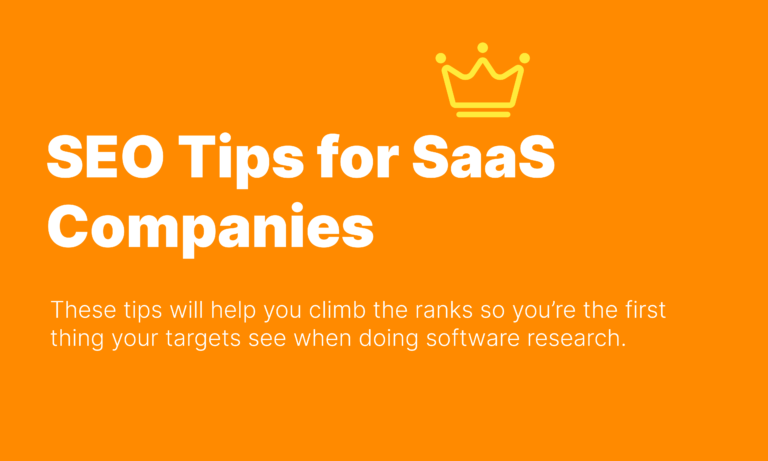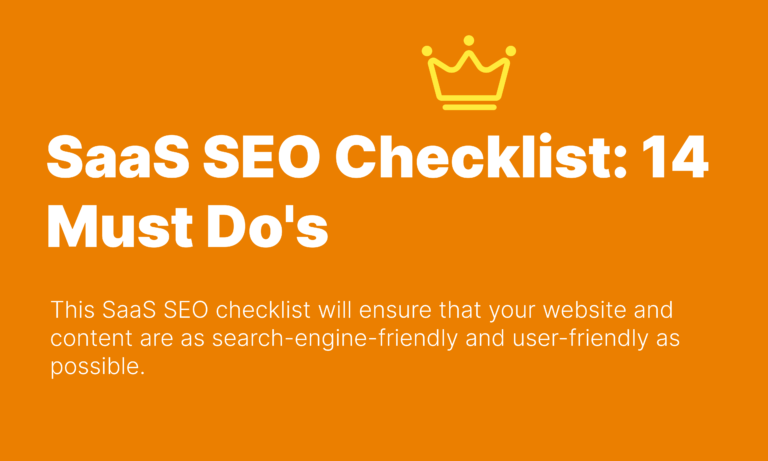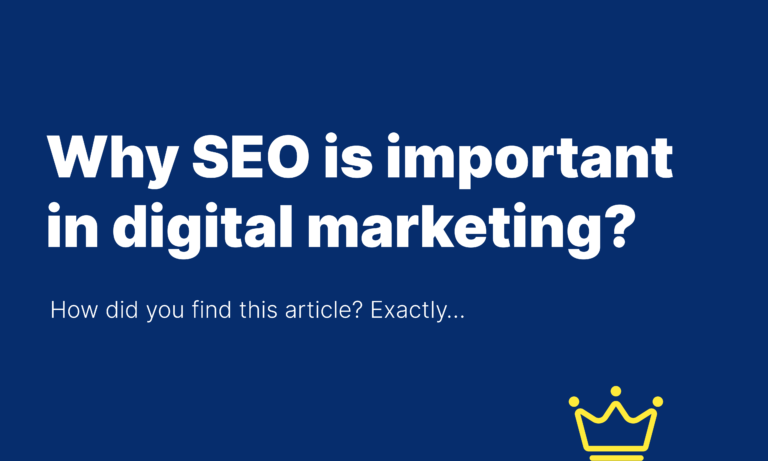Why an SEO Audit is Important for Website Growth

Just like a doctor needs to make a diagnosis before recommending a treatment, you need to make a full analysis of your website to determine the best path to organic growth.
An audit looks into even the smallest technical issues that could affect your rankings but it also identifies opportunities for growth. With an audit, you can learn exactly what needs to change, how the competition is successful, and how you can implement a strategy that is just right for you and your target audience.
Considering that only 33% of websites pass the Core Web Vitals threshold (Google’s measurements for page speed), by optimizing your site, you can have a huge advantage over most sites.
The Importance of SEO Audits
SEO audits are crucial. They pinpoint issues affecting site rank. Regular checks ensure a site meets search engine standards. This process reveals changes needed to climb SERPs. It’s a roadmap for website optimization.
Audits cover technical, on-page, and off-page SEO. They assess how well a site adheres to best practices. This evaluation guides improvements. It helps websites stay relevant and competitive.

We can do your content marketing
Uphill Content specializes in growing SaaS businesses, from early-stage to exit. Send us a message to learn how we can help.
Identifying Technical Issues
Technical issues can block a site’s success. Slow load times and broken links are common culprits. An SEO audit spots these problems. Fixes can lead to better rankings.
Mobile unfriendliness also hurts a site. Audits reveal if a site works well on phones. A mobile-friendly site reaches more users. It performs better in search results.
Improving On-Page SEO
On-page SEO involves site content and structure. Audits check for proper keyword use and meta tags. These elements help search engines understand a page. Correcting issues boosts visibility.
Content quality matters too. Audits assess if content matches search intent. High-quality, relevant content ranks higher. It attracts more visitors.
Evaluating Off-Page SEO
Off-page SEO focuses on external factors. Backlinks are key. They signal a site’s authority. An audit reviews backlink quality, so good backlinks improve rankings. 26% of pages have no more than three backlinks, and that’s because it’s not easy to get others to vouch for your content. But if you’re able to gain links, then you can have a great advantage.
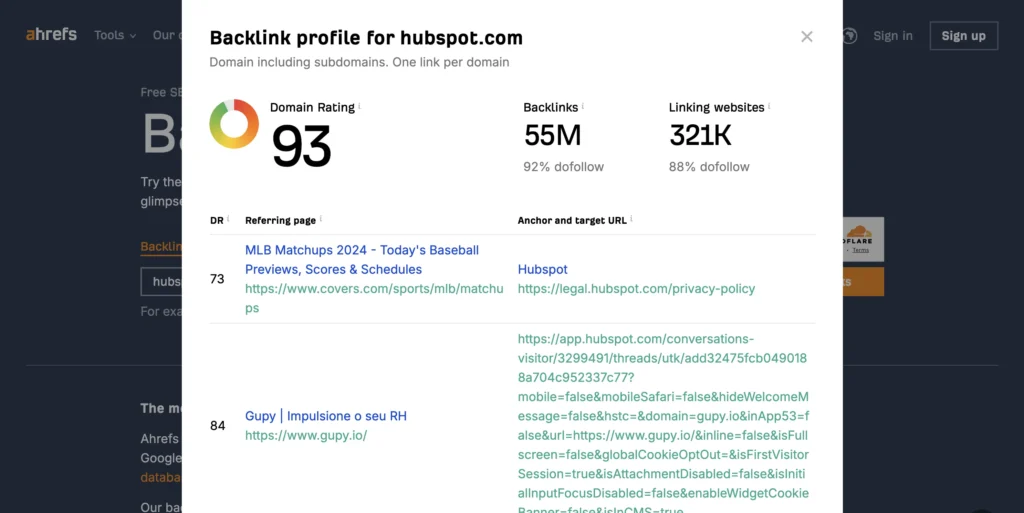
Social media presence also impacts SEO. Audits examine this area. A strong social media strategy can enhance site authority. It leads to higher search engine placement.
Understanding User Experience (UX)
UX affects SEO. A site easy to navigate retains visitors. Audits check for user-friendly design. Improvements here can reduce bounce rates. Lower bounce rates boost SEO.
Page speed is another UX factor. Fast-loading pages hold user interest. Audits identify slow pages. Speeding up these pages can improve user satisfaction and SEO.
Competitive Analysis
Understanding competitors is vital. SEO audits compare your site to others. This comparison highlights strengths and gaps. Insights guide strategy adjustments.
Audits reveal competitor keywords and backlinks. This information shapes SEO tactics. It helps sites compete more effectively. Adopting successful strategies can increase rank.
The Benefits of Regular SEO Audits
Regular SEO audits keep a site in top shape. They uncover issues that affect performance. With ongoing audits, a site maintains high search engine rankings. They ensure a site’s SEO strategy is current.
Audits also help with planning. They show what works and what doesn’t. This information is crucial for making informed decisions. It guides SEO efforts in the right direction.
91% of all pages don’t get organic traffic from Google searches. So you need all the tools you can get to maximize your rankings, including the most basic one, an audit.

Get a free SEO audit
Enter your business email below to get a free SEO audit with actionable insights to improve your site.
Keeping Up with Algorithm Updates
Google often updates its algorithm to improve results. These changes can impact site rankings, so regular audits help sites adapt to these updates. They ensure a site remains compliant with new standards.
With so many changes, staying updated prevents ranking losses, since it keeps a site visible to its target audience. Without audits, a site may fall behind. Keeping pace with algorithm changes is essential for success and you can check out the newest updates on Google Core Updates page.
Guiding Content Strategy
Audits influence content creation. They reveal which topics attract visitors. This knowledge helps in planning future content and ensures the site meets user needs and interests.
Audits also highlight content gaps, and by filling these gaps, you can attract more visitors. A well-informed content strategy engages and retains users while driving traffic and improving rankings.
Just see what other SEO professionals say: Relevant content is considered the best SEO tool by 72% of marketers.
Long-Term SEO Health
Regular audits protect a site’s SEO health. They prevent small issues from becoming big problems. This proactive approach saves time and resources while keeping a site competitive over time.
Long-term health boosts a site’s authority and trustworthiness and search engines favor such sites. So, a well-maintained site attracts more visitors and achieves lasting success.
Types of SEO Audits
Each audit type addresses specific SEO aspects. Together, they provide a comprehensive SEO strategy that helps websites rank higher, attract more visitors, and meet user needs. Regular audits in these areas ensure ongoing SEO success.
On-Page Audit
On-Page audits focus on elements within your site, aiming to improve site content and structure. It ensures pages target relevant terms. On-Page audits boost visibility and engagement by analyzing the following:
- Keyword optimization
- Content quality
- Meta tags and descriptions
- URL structure
Off-Page Audit
Off-Page audits assess a site’s authority and trust to enhance your site’s image and rankings through external sources. With this type of SEO audit, you can get deeper insights into your:
- Backlink quality and quantity
- Social media presence
- Online reputation
Local SEO Audit
Local SEO audits optimize a site for geographical searches, helping brick-and-mortar businesses get more local traffic. This audit is crucial for businesses relying on local customers. Here’s what this audit looks at:
- Google My Business listing
- Local citations and NAP consistency (Name, Address, Phone)
- Local backlinks
- Local content and keywords
Most Important Elements of an SEO Audit
Content Analysis
Content analysis assesses if your blog and site content meets user needs. It checks for depth, accuracy, and engagement. High-quality content answers queries effectively and matches search intent, keeping users on the page longer. Remember that content is king, but you need to have the right strategy in place to succeed.
This process also looks at keyword use in content, ensures terms are relevant and appropriately placed. Proper keyword optimization helps pages rank for targeted searches and makes content discoverable to the right audience. If you make an article about something no one is looking for, then no one will read it.
Strategy Assessment
Strategy assessment evaluates your SEO plan’s effectiveness. It checks if goals align with outcomes. This review identifies strengths and areas for improvement and adjustments are made based on findings to enhance performance.
The assessment informs future SEO strategies and helps prioritize actions that drive better results. Focus may shift to areas yielding the highest return.
Page Speed Test
Page speed tests evaluate how quickly content loads. Fast loading improves user experience and sites that load quickly retain visitors better. In fact, 40% of users abandon a website that takes more than 3 seconds to load. It’s a huge deal for users. Think of all the lost opportunities for mostly simple fixes.
These tests pinpoint elements that slow down pages. Common culprits include large images and unoptimized code. Solutions often involve compressing files and cleaning up code.
Improving speed enhances site usability and SEO rankings. Use Google’s tool, PageSpeed Insights to test your site’s speed.
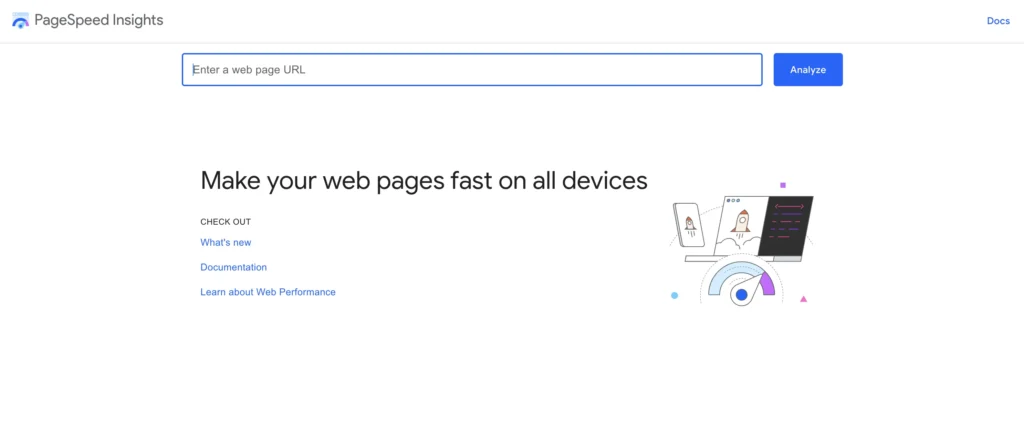
Meta Data Review
Metadata review focuses on title tags and meta descriptions. These elements summarize page content and influence click-through rates from search results. Effective metadata attracts more clicks, which can signal to Google that your content is more in line with what users are looking for.
Link Analysis
Link analysis examines the quality and structure of links. Internal links connect pages within a site and help with navigation and SEO. External links, or backlinks, come from other sites and primarily boost credibility and ranking.
Through a link analysis you can check for broken links and evaluate backlink quality. Good links come from reputable sites and are relevant to your content. Link analysis aims to improve site authority and user experience. Just as good backlinks can increase your authority, bad ones will lower it.
Competitive Analysis
What works for your competition will also work for you, but if you do it better, you will surpass them in rankings. Competitive analysis looks at how your site stacks up against competitors. It identifies what they do well and where they fall short, guiding strategy tweaks.
Learning from competitors shapes your SEO approach since it may reveal new keywords or content ideas you can capitalize on. The aim is to leverage this intelligence to help refine your efforts for better search engine visibility.
Keyword Research
Keyword research uncovers terms your audience uses. It looks for phrases with high search volumes but low competition. These are called long-tail keywords.
After identifying potential keywords, the next step is to prioritize them. Factors include search volume, competition, and relevance. Prioritization focuses efforts on terms most likely to improve rankings and attract visitors. Without the right strategy, you could waste time and resources ranking for keywords that don’t attract the right audience.
Get a Free SEO Audit for Proven Success
If you want an audit from SEO professionals with experience growing businesses, we can help. For free!
Unlock your website’s potential with Uphill Content’s free SEO audit. Our audit pinpoints areas for improvement and will help you understand how your site performs against key SEO metrics. With this insight, you can make better-informed decisions. You’ll see where your site excels and where it needs work.
Our free audit doesn’t just highlight problems, it offers tailored advice on how to fix them. We’ll guide you through each step needed to boost your site’s SEO performance. From technical issues to content strategy, we provide actionable recommendations. This means you can start making improvements right away.

Get a free SEO audit
Enter your business email below to get a free SEO audit with actionable insights to improve your site.
